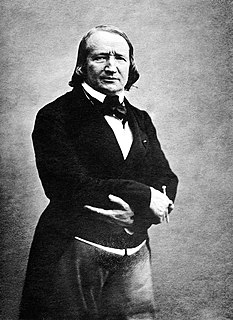A Quote by Alfred de Vigny
The study of social progress is today not less needed in literature than is the analysis of the human heart.
Quote Topics
Related Quotes
The study of social progress is to-day not less needed in literature than
is the analysis of the human heart. We live in an age of universal
investigation, and of exploration of the sources of all movements.
France, for example, loves at the same time history and the drama,
because the one explores the vast destinies of humanity, and the other
the individual lot of man. These embrace the whole of life. But it is the
province of religion, of philosophy, of pure poetry only, to go beyond
life, beyond time, into eternity.
I studied the Quran a great deal. I came away from that study with the conviction that by and large there have been few religions in the world as deadly to men as that of Muhammad. As far as I can see, it is the principal cause of the decadence so visible today in the Muslim world and, though less absurd than the polytheism of old, its social and political tendencies are in my opinion more to be feared, and I therefore regard it as a form of decadence rather than a form of progress in relation to paganism itself.
I've got to stop getting obsessed with human beings and fall in love with a chair. Chairs have everything human beings have to offer, and less, which is obviously what I need. Less emotional feedback, less warmth, less approval, less patience and less response. The less the merrier. Chairs it is. I must furnish my heart with feelings for furniture.
In recent years our knowledge of modern technology has increased considerably, and as a result we have witnessed remarkable material progress, but there has not been a corresponding increase in human happiness. There is no less suffering in the world today, and there are no fewer problems. Indeed, it might be said that there are now more problems and greater dangers than ever before.
I am prepared to maintain that Honesty is essentially an anarchistic and disintegrating force in society, that communities are held together and the progress of civilization made possible only by vigorous and sometimes even, violent Lying; that the Social Contract is nothing more or less than a vast conspiracy of human beings to lie and humbug themselves and one another for the general Good.
For that reason the simple test of the slogan 'Consume Less' as a basis for social action on the environment would be to tell it to the blacks in the ghetto. The message will not be very well received for there are many people in this country who consume less than is needed to sustain a decent life.
The discovery of the North Pole is one of those realities which could not be avoided. It is the wages which human perseverance pays itself when it thinks that something is taking too long. The world needed a discoverer of the North Pole, and in all areas of social activity, merit was less important here than opportunity.





































